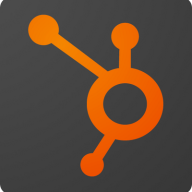

Microsoft Dynamics CRM and HubSpot CRM are strong contenders in the CRM market. HubSpot CRM stands out due to its affordability, user-friendly interface, and comprehensive features, offering a significant advantage in marketing and sales automation.
Features: Microsoft Dynamics CRM offers high customizability, robust integration capabilities with the Microsoft ecosystem, and valuable customer interaction tracking. HubSpot CRM is praised for its ease of use, marketing automation, and a free version suitable for small businesses.
Room for Improvement: Microsoft Dynamics CRM faces challenges with intuitive use, mobile app optimization, and can have high customization costs. HubSpot CRM could enhance its customization options and pricing optimization for paid versions, with some users citing limitations in the free version.
Ease of Deployment and Customer Service: Microsoft Dynamics CRM has a complex backend requiring more configuration, while HubSpot CRM is simpler, requiring fewer technical resources. Microsoft Dynamics offers varied support based on subscription levels, whereas HubSpot CRM generally provides adequate customer service and easier setup.
Pricing and ROI: Microsoft Dynamics CRM is seen as expensive, especially for smaller businesses, but offers strong integration and functionality for larger enterprises justifying the cost. HubSpot CRM is more affordable, with the free version appealing to small businesses, providing positive ROI for SMEs seeking an all-in-one platform.
I recommend that those considering Microsoft Dynamics CRM conduct an ROI exercise to determine scalability and complex business needs because it is indeed a fantastic tool, especially if Microsoft can provide a better commercial model, which can significantly impact cost-effectiveness.
HubSpot's customer service is excellent and fast.
Many users give it only a couple of minutes before moving on, so there should be ways for quick, direct access and follow-up, which is currently somewhat challenging.
There is always an account rep that's available, and there is a technical account rep that is available for every account.
I would rate customer support as ten out of ten.
While the support operates within their standard SLA, it can be difficult to speak directly with someone over the phone.
Sometimes the technical support for Microsoft Dynamics CRM is not qualified enough, and in some situations, we know the tool better than they do.
Handling around 100 to 150 users is fine.
There are a lot of enterprises using it, however, even as a GTM for HubSpot, their target market is predominantly SMB.
HubSpot CRM is a scalable solution.
Microsoft Dynamics CRM is highly scalable, rated at ten, even fifteen out of ten.
I would give it a ten out of ten for scalability.
Microsoft Dynamics CRM is scalable; it's easy to scale, but when customizations become extensive, maintainability can become challenging.
I would rate it ten out of ten.
There have been instances where issues with Microsoft Azure have affected Dynamics due to the infrastructure layer.
HubSpot should establish some pre-deployable packages that, when contracted, offer basic functionality.
A better CRM can be achieved by providing more customization features.
The response time is slow.
More use-case-oriented material should be provided to help users and implementers learn how to do more, faster.
Microsoft Dynamics CRM needs improvement in simplifying the setup and configuration process, which can be relatively complex when we want all features to work properly.
Microsoft Dynamics CRM doesn't provide solutions that allow you to transform easily if you have a heterogeneous mix of technologies or if your contact center is on analog and you try to digitize it.
The pricing of Microsoft Dynamics CRM can be complex due to Microsoft's complicated licensing model.
Microsoft Dynamics CRM costs about $110 to $115 per user per month, following a recent price increase.
Although it is a good tool, it is costly.
HubSpot stands out for its ease of use, especially with sequence creation compared to other CRM solutions.
The most valuable feature for me is when I encounter a company or a person, I can drop in their URL, and it pre-populates various details like address information and other contacts they might have.
The feature that I find valuable is the customer 360-degree view and the marketing automation.
The backend storage integrates seamlessly with OneDrive, and the solution offers robust security features, including Azure integration, two-factor authentication (2FA), and comprehensive audit trails.
The CRM is very fast, which is the most important aspect, and it's very handy.
The most valuable feature of Microsoft Dynamics CRM is its integration with Outlook and other Microsoft products like Microsoft 365, which includes emails, Teams, and SharePoint.
| Product | Market Share (%) |
|---|---|
| Microsoft Dynamics CRM | 2.8% |
| HubSpot CRM | 1.2% |
| Other | 96.0% |


| Company Size | Count |
|---|---|
| Small Business | 39 |
| Midsize Enterprise | 5 |
| Large Enterprise | 8 |
| Company Size | Count |
|---|---|
| Small Business | 41 |
| Midsize Enterprise | 22 |
| Large Enterprise | 19 |
HubSpot CRM is a comprehensive customer relationship management software that helps businesses manage their sales, marketing, and customer service activities. It offers a wide range of features, including contact management, email tracking, deal tracking, and task management.
With its intuitive interface and easy-to-use tools, HubSpot CRM allows users to streamline their sales processes, track customer interactions, and improve overall productivity. It also integrates seamlessly with other HubSpot products, such as marketing automation and customer service, providing a complete solution for businesses of all sizes.
Whether you're a small startup or a large enterprise, HubSpot CRM can help you organize and grow your customer relationships.
Microsoft Dynamics CRM is a comprehensive customer relationship management solution that helps businesses streamline their sales, marketing, and customer service processes. With its user-friendly interface and powerful features, it enables organizations to effectively manage their customer interactions and drive business growth.
One of the key features of Microsoft Dynamics CRM is its sales automation capabilities. It allows sales teams to track leads, manage opportunities, and close deals more efficiently. The solution provides a centralized platform for managing customer information, enabling sales representatives to access real-time data and make informed decisions. It also offers tools for forecasting, pipeline management, and sales analytics, helping businesses optimize their sales processes and drive revenue growth.
In addition to sales automation, Microsoft Dynamics CRM offers robust marketing automation features. It enables marketers to create and execute targeted marketing campaigns, track campaign performance, and generate actionable insights. The solution provides tools for lead management, email marketing, social media integration, and customer segmentation, allowing businesses to engage with their customers effectively and drive marketing ROI.
Furthermore, Microsoft Dynamics CRM helps organizations deliver exceptional customer service. It provides a unified view of customer interactions, enabling customer service representatives to deliver personalized and timely support. The solution offers case management, a knowledge base, and self-service portal capabilities, empowering customers to find answers to their queries and resolve issues on their own. It also provides tools for service analytics and reporting, helping businesses identify areas for improvement and enhance customer satisfaction.
We monitor all CRM reviews to prevent fraudulent reviews and keep review quality high. We do not post reviews by company employees or direct competitors. We validate each review for authenticity via cross-reference with LinkedIn, and personal follow-up with the reviewer when necessary.